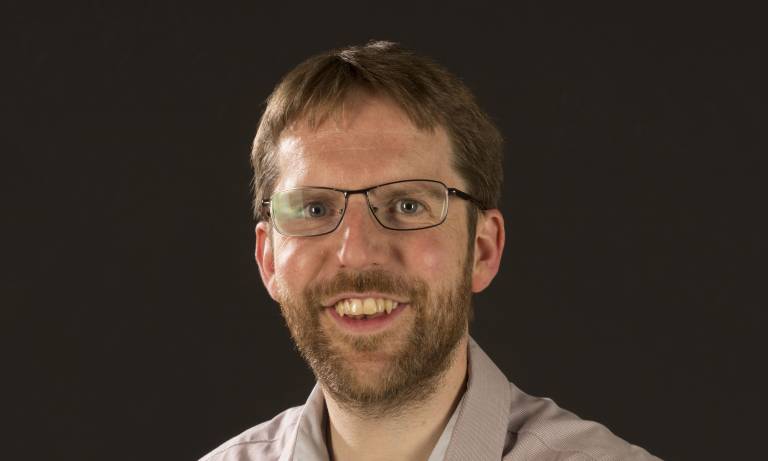UCL Institute of Neurology programme improves access to scientific careers for low-SES students
15 August 2018
Social background can be a barrier to pursuing a degree in science & medicine. David Blundred, Education Manager at IoN, has introduced a programme that makes education in this field more accessible.

Under David’s guidance UCL Institute of Neurology has introduced the Social Mobility Foundation (SMF) programme, which aims to make a practical improvement in social mobility for young people from low-income backgrounds.
To promote the efforts of the programme, David has engaged in work experience events such as a three-day placement activity for 50 students on the SMF programme held on 30th July-1st August 2018; and developed and produced YouTube videos with students and clinicians.
For the first two days students attended lectures and seminars on topics such as interview skills, career options, practical sessions on how to conduct a neurological examination, and talks on current research. For the third day students attended practical workshops where they had hands-on experience of research or clinical practice in a lab/clinical setting.
“Working with the SMF is something I was very keen to be involved with – the opportunity to help in some small way to encourage young people from low-income backgrounds to consider degrees and future employment in medicine and science,” said David. “Medicine in particular is under-represented for people from low-income backgrounds and ethnic minorities, and it is clear to me that the profession as a whole would greatly benefit from more diversity.”
David is a strong advocate for the programme and is always encouraging IoN colleagues to get involved, either through teaching, delivering a workshop or becoming a mentor to a young person.
The programme has received extremely positive feedback from the students involved. In 2018:
- 90% of students said that the placement either met or exceeded their expectations.
- 25 out of 30 Students felt that they would not have been able to secure the placement at the Institute of Neurology without the help of the SMF.
- 24 out of 30 students said that they are likely to apply to opportunities at the Institute of Neurology in the future.
Student quotes:
“The internship gave me hope that there are many routes that I can take in a career in science, that there's not just one straight path or destination, so I feel excited to continue my journey in science as it's now less daunting.”
“It was an amazing experience overall. I enjoyed watching a demonstration of the MRI and MEG scan.”
“I have learned that people with different degrees, not just the typical medicine are working together under the Institute of Neurology to tackle and do research on neurological diseases to hopefully eradicate the diseases in the future with cures or effective treatment.”
“I liked the enthusiasm of some of the lecturers and employers we got to meet. It demonstrated how much they enjoyed their job.” “I was glad to have many talks, they definitely increased my interest on neurology and neuroscience. I really enjoyed this internship and learnt a lot.”
“It was a good experience. I was able to fully immerse into the lectures as they were solely based on what I was interested in.”
In summer 2017, a total of 36 Year 12 students on the SMF Programme undertook two three-day placements with IoN. During their time on the programme, students had the opportunity to develop key skills and areas of knowledge in line with SMF's Managing My Future Framework:
“During the internship I found the people who worked at the Institute and the hospital very encouraging and friendly. It was especially insightful going to the National Hospital for Neurology and Neurosurgery to see how the system worked there.”
“I definitely learned more about the Institution of Neurology and what they do, and was really impressed with what I had seen.”
Survey feedback revealed that 80 per cent of the students said that they are likely to apply for opportunities at IoN in the future. All students said that the placement helped them to gain a greater insight into their chosen career.
“The opportunity to engage with a young person at a pivotal part of their life can have a strong influence on their decisions regarding what it is they would like to study,” explained David.
Despite the success of the programme David believes there is more to be done. He is now looking to get involved with a local charity to help young people with disabilities who live in Camden access internships to help kick-start their careers.
“Discrimination is a real barrier to many in society and I think you have to be active in trying to help combat it, both to challenge your own prejudices and preconceptions along with those of others.”
 Close
Close

